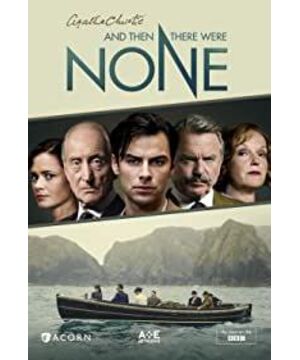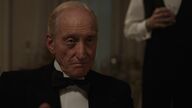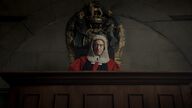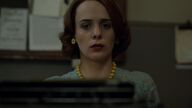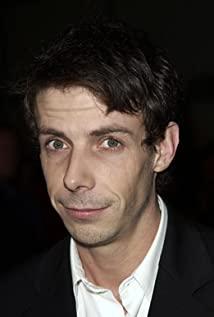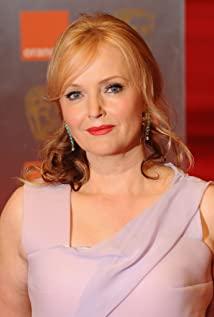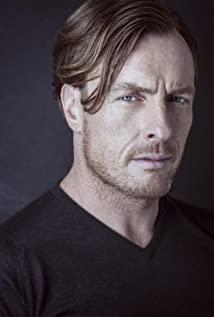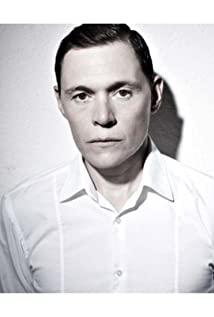After reading the novel, I came to watch the drama directly. I feel that the drama is better than the novel. There are a few adaptations I like:
1. The death of Butler Rogers was bloodier than in the novel. The novel just says that Rogers was hacked to death, hit in the head. But even the internal organs are exposed in the play. Because Rogers' behavior is worse in the show than in the novel, so the death is also more terrifying. I really like the setting that Mrs. Rogers always wears sunglasses to hide her fear and dare not face reality. I also really liked Rogers' little gesture of putting the sunglasses in his breast pocket after his wife's death. This is the good side of his humanity, and everyone should be three-dimensional.
2. In the play, Vera went mad soon after, and Armstrong went mad afterward. Moreover, the series specifically explained that Armstrong was good at psychology (the novel seems to clearly say that doctors are not good at psychology), which also changed Armstrong's good-natured personality. This change is more realistic and ironic. Vera broke out first, but after the outbreak, she returned to her rationality, with a feeling of being unbreakable. Even if they are criminals, this is what happens when criminals face their own crimes.
3. Villa's relationship with Longbottom should be out of self-preservation. She knew that Longbottom had a crush on her, and Longbottom was the only one with a gun and a strong man. As the only woman, Vera decided to take advantage of her gender. At first Vera murdered for love, but now she pretends to love to survive.
4. Emily Blunt should have had an abnormal sexual orientation. She has always believed that she abides by the truth of God, and wants to come with a clear conscience. But he did not see his sin.
5. Philip Longbottom's accusation went from killing a black man for the sake of diamonds. I don't know if this reflects the progress or regression of human society? In Agatha's day, it was unforgivable to lay down other people's lives, even for self-preservation. But now we need to make this accusation more sinful to ensure the logic of the script.
The judge is the last to die, and all the order and methods of death are designed. The more sinful, the longer the torture will be. Therefore, Agatha's crime level is: Manslaughter < Forced to participate in murder < Vendetta < Murder by boat < Neglect of duty < For self-interest, active murder (1 person) < Active murder for self-interest (21 people) < for Murder (children) for selfish interests
From a biblical point of view, all sin is death, in fact, sin is not serious in terms of consequences. When God created the Garden of Eden, he instructed Adam and Eve not to eat the fruit of the tree of the knowledge of good and evil. Why doesn't God allow man to distinguish between good and evil (judgment)? There are many explanations:
1. Humans already have the ability to distinguish between good and evil (the ability to discern where repairs are needed in the Garden of Eden), so the establishment of the Tree of Knowledge of Good and Evil is partly a test of faith.
2. It is extremely difficult to truly distinguish between good and evil (judgment), which is beyond the existing wisdom of human beings, so the ultimate distinction between good and evil should be done by God. For example, Anthony killed a child, must Anthony be a bad guy? Not necessarily, if he knew that driving fast tonight would kill two children, would he still drive fast? He didn't feel very guilty about killing the child at dinner. If he received enough life education from a young age, would he still disrespect other people's life? We can be sure that Anthony Marston did not receive enough education and did not have enough awareness of safe driving. So who should be judged? Anthony? Anthony's teacher? Anthony's parents and friends?
If Adam and Eve had not disobeyed God, sin would not have been introduced into the world, so there would be no covetousness, cruelty, indifference to life. But they violated it, so in order to prevent society from degenerating indefinitely, we have a moral code, a law, and a judge. Laws and judges are to uphold the bottom line of society, and those who cross the line will be punished. This is the meaning of "bottom line". The part above the bottom line is the scope of social supervision and moral management. Willful murder like Vera in the novel has broken the bottom line of society and should be punished. But is it too hasty for judges like Mrs. Rogers? This is the so-called tyrannical master.
View more about And Then There Were None reviews


